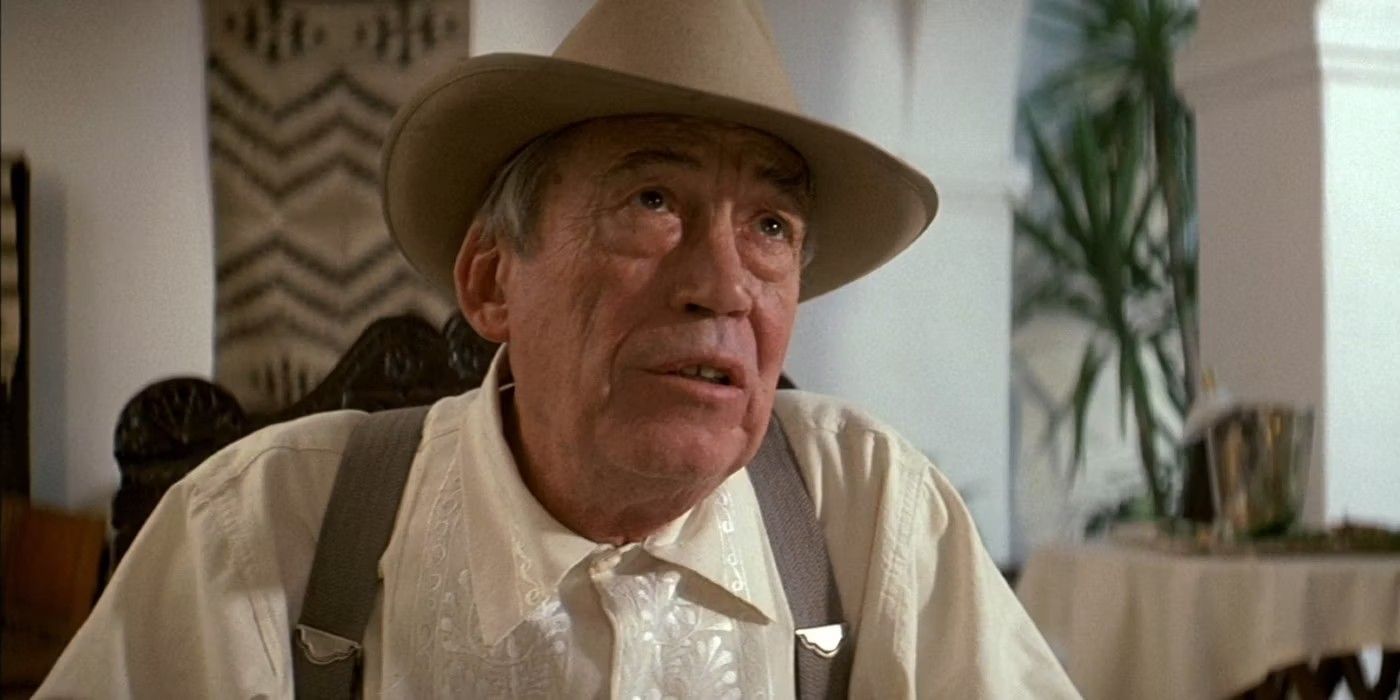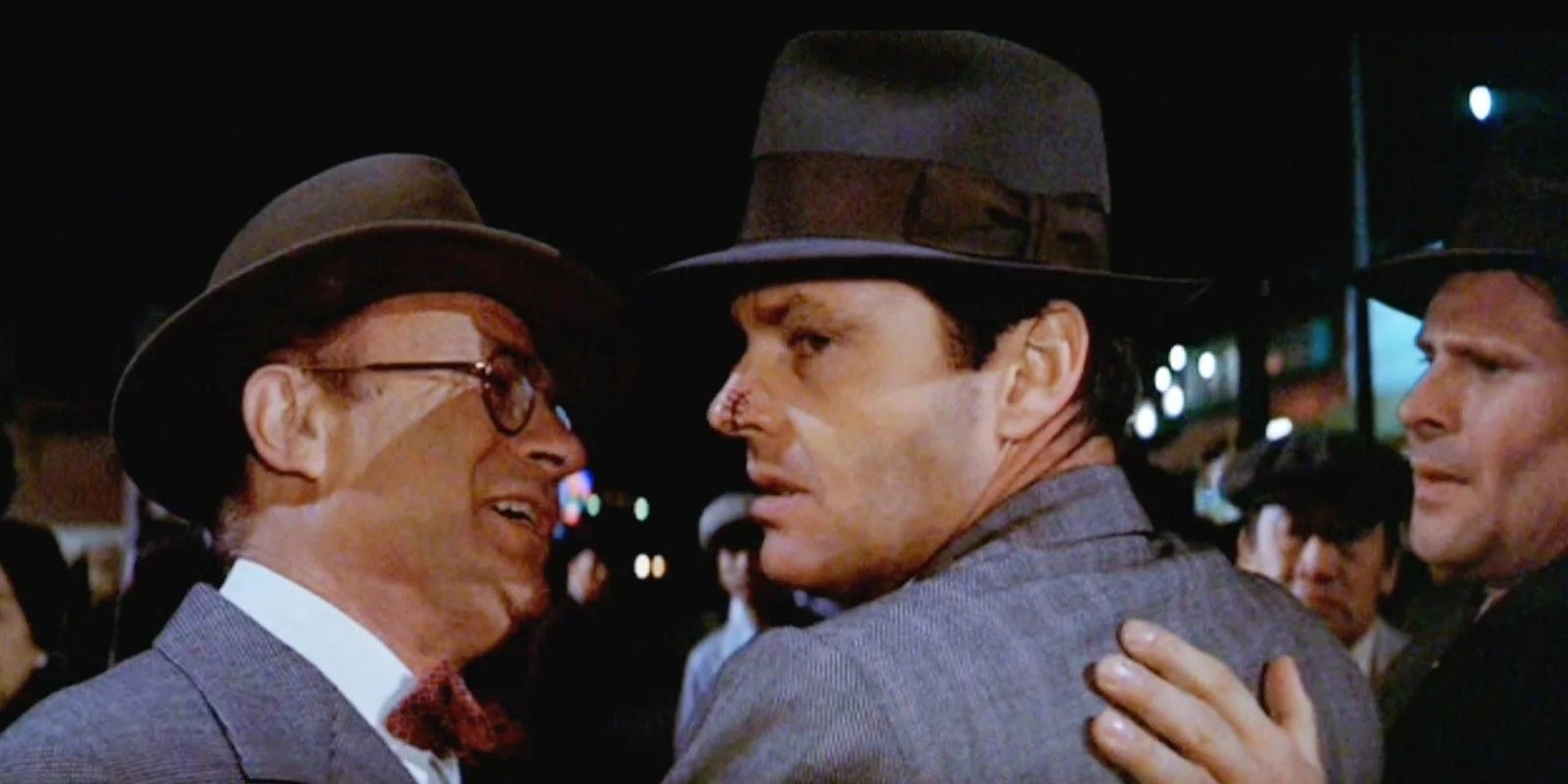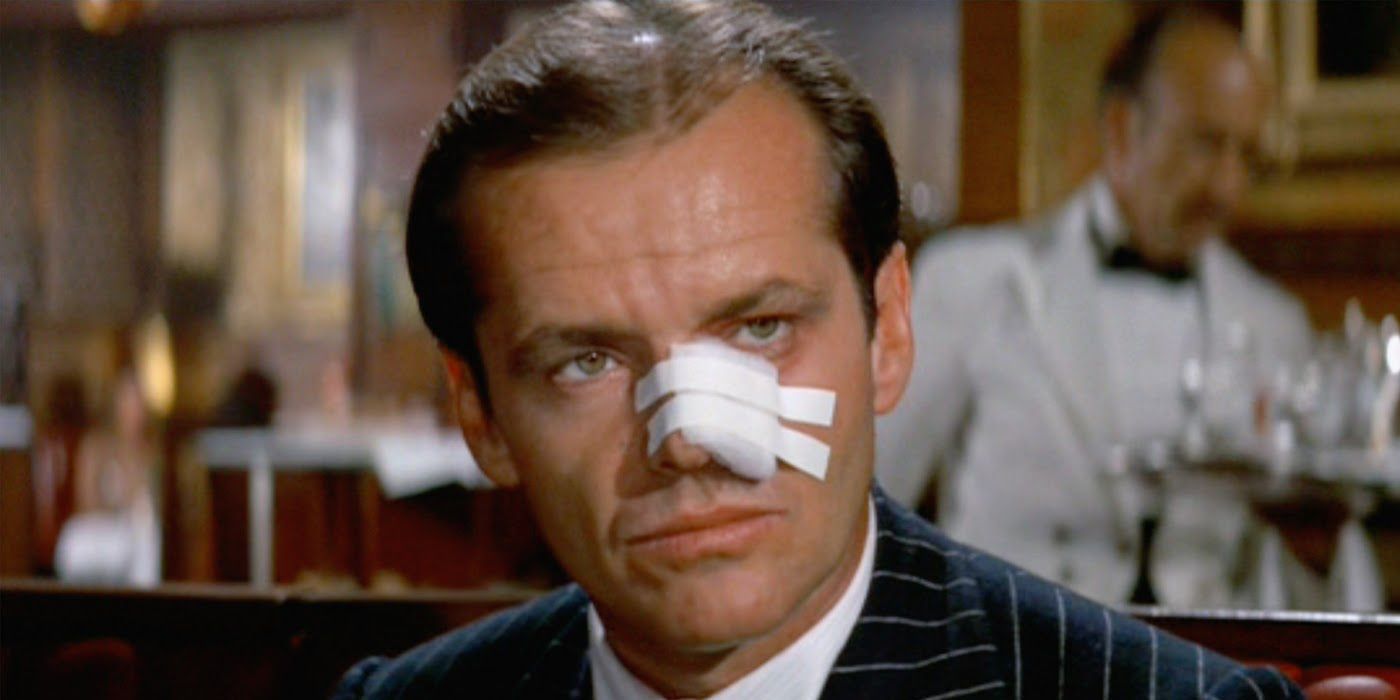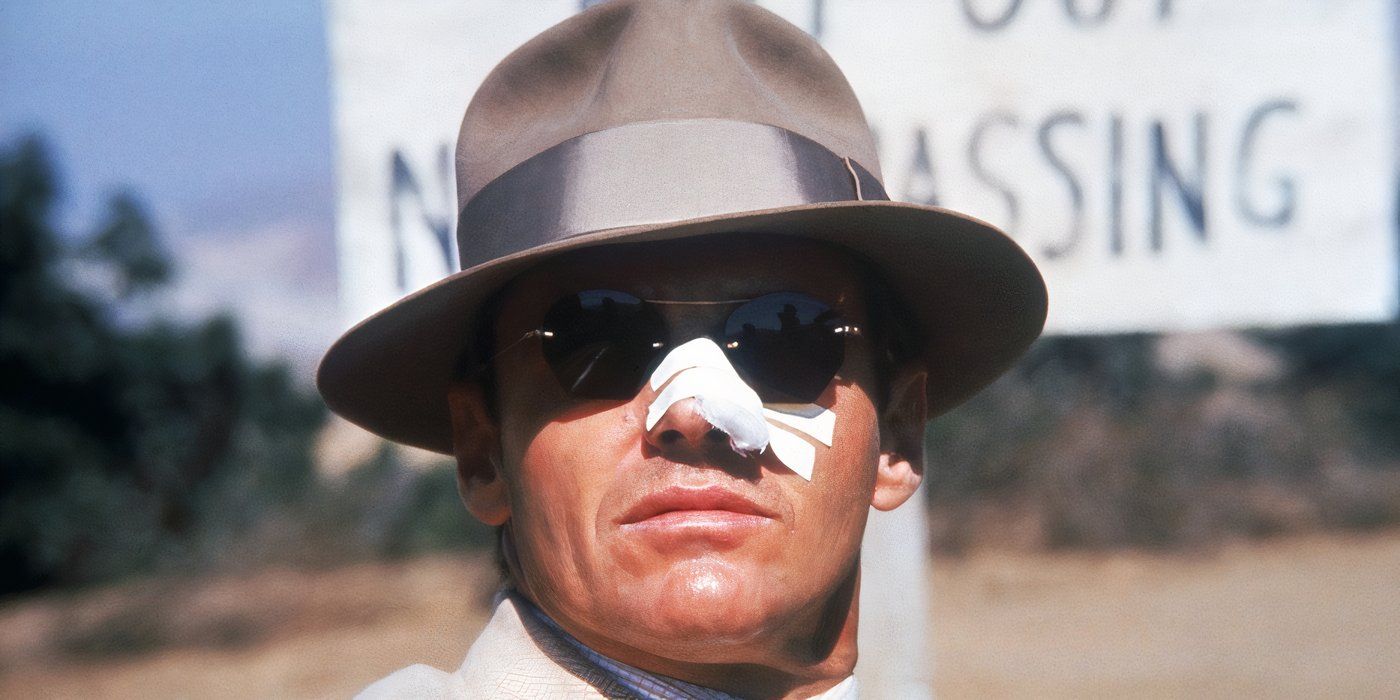The Chinatown movie explained that sometimes the real world has stunningly dark endings that still have the power to shock. Directed by Roman Polanski and written by Robert Towne, Chinatown offers a unique spin on the detective stories of the 1940s, giving them a much darker twist than movies of that era would typically allow. Chinatown was recognized for its greatness and received a slew of accolades, including 11 Oscar nominations, one for Best Picture, and was honored as part of the AFI’s 100 Greatest Films list in both 1998 and 2007.
Set in 1937, Chinatown follows the exploits of private detective Jake Gittes (Nicholson) as he investigates a series of deaths linked to water and land deals in Los Angeles’ then-unincorporated valley region. Chinatown was inspired by a real story though the main plot and eventual dark ending were fabricated for the sake of the movie. It does an excellent job of wrapping its plot threads up by its tragic finale, but doesn’t pull any punches (and leaves some ambiguous notes). Chinatown is a tragedy at heart, and that is one reason it has had tremendous staying power.
What Happens In Chinatown’s Ending?
Cracking The Case Doesn’t Bring Peace For Jake Gittes
The ending of Chinatown sees Jake Gittes piecing together the web of conspiracy weaved by Noah Cross (John Huston). Jake discovers it was Cross who murdered Hollis Mulwray (Darrell Zwerling) and was also responsible for the death of Ida Sessions. On the way to one of the most shocking film noir twist endings of all time, Jake attempts to help Hollis’s wife, Evelyn Mulwray (Faye Dunaway), escape back to Mexico with her daughter, Kathrine (Belinda Palmer). However, his plan is foiled when he is captured by Cross, who reveals his plan and forces Jake to meet Evelyn in Chinatown.
Once in the Chinatown neighborhood of Los Angeles, Jake is immediately detained by the local police, who are obviously in cahoots with Cross, and the land baron attempts to take control of Katherine and Evelyn to tie up the last loose ends. In a fit of desperation, Evelyn shoots Cross in the arm and tries to drive off with her daughter in tow, only to be immediately gunned down by the police officers on the scene. Cross then completely gets away, taking custody of Katherine after claiming to be her grandfather, while Jake can only watch in horror.
Cross Killed Mulwray & Ida Sessions To Silence Them
The Murders In Chinatown Happened To Facilitate Shady Corporate Dealings
The death of Hollis Mulwray is essentially Chinatown‘s inciting incident, and it sets Jake Gittes down the dark path that will eventually lead to the finale. Mulwray’s connections to the Los Angeles Department of Water and Power made him the perfect business ᴀssociate for Noah Cross, but their disagreement proves to be ᴅᴇᴀᴅly. With Mulwray’s refusal to build another dam, Cross kills him off to get him out of the way. Mulwray’s marriage to Cross’s daughter, Evelyn, was of no consequence to the greedy businessman, and he used the opportunity to take custody of his younger daughter, Katherine.
In typical film noir style, Ida Sessions was hired by Cross to pose as Evelyn to discredit Mulwray. The plan was to make Mulwray look like a cheater, with the end goal of making his death look like it was self-inflicted. However, Ida outlives her usefulness to Cross when she tips Jake off to his retirement home scheme, so Cross has her killed. Chinatown succeeds because of its brilliant writing and direction, but how exactly Ida knew about the retirement home scheme is a plot hole that is never addressed in the movie.
Evelyn Was Katherine’s Mother & Sister
The Chinatown Incest Twist Explained
Murder and intrigue are common in film noir, but Chinatown‘s darkest twist represents the dour atтιтude of the best movies of the 1970s. Katherine is a character who exists on the fringes of the story, and Jake even believes she is being held hostage by Evelyn before he eventually learns the horrifying truth. Evelyn flips her story from claiming that Katherine is her sister to saying that Katherine is actually her daughter.
Pressed harder by the exasperated detective, Evelyn confesses that Katherine is her sister, but also her daughter, the result of her father ᴀssaulting her when she was 15.
What Does Chinatown’s Final Line Mean?
One Of The Movie’s Most Iconic Quotes Sums Up Its Core Themes
After witnessing the cold-blooded murder of Evelyn and seeing Katherine taken by Cross, Jake is told to “forget it…it’s Chinatown,” to which he can only blink in horror. One of the best movie ending scenes in history, its iconic quote also explains the movie’s ending. Earlier, Jakes says that when he worked for the district attorney in Chinatown, he was told to do “as little as possible,” implying that he was warned to look the other way to avoid trouble. Jake realizes that his lax view of corruption leads to Cross’s power grab and the deaths in the movie.
By setting Chinatown in the 1930s, the story became a comment on the similarities in politics between that decade and the 1970s, when it was released, as well as tipping its hat to the great private investigator stories of old. Chinatown is where Evelyn’s butler lives, and she thought the anonymity of the neighborhood would protect her, but it was actually the perfect place for Cross to enact his violent scheme. “It’s Chinatown” is figurative and literal, as no one would look twice at police brutality in a neighborhood full of non-whites.
The Real Meaning Of Chinatown’s Ending
The Chinatown Finale Is About The Futility Of Fighting Corruption
The ending of Chinatown isn’t particularly confusing, but its bluntness is an artistic statement on its own. The movie is representative of the mood of the 1970s and was similar to its contemporaries by leaving audiences with a negative outlook on the world. Noir films had always been dark and moody, but Chinatown pushed those principles to new heights while remaining symbolic.
Keeping in tradition with the American New Wave movement, Chinatown‘s bleak ending is a broad statement about the futility of fighting corrupt insтιтutions, and it reflected the political landscape of the 1970s. Despite being set in the 1930s, the ending of Chinatown was about modern issues.
How The Chinatown Movie Ending Was Received
The Film Is Considered The Best Screenplay Ever Written
Chinatown remains one of the most highly respected movies of all time. On Rotten Tomatoes, it holds a 98% “fresh” critics score and a 93% audience rating. One audience reviewer only recently watched it and believes it still holds up today, writing, “It’s a convoluted plot but in a rich way, not a confusing way, rather in that it’s intricate and woven… A tragic arc of a tale, it can drag a little at times, but there’s no question this is a movie every film lover should see.“
However, not all viewers were fans of the shocking ending, and how the film just wrapped up after the reveal. One Redditor spoke out about the idea of the film, saying that you can’t change the system, calling it dangerous. They wrote, “Sometimes a sad ending is warranted but sometimes, I get a movie whose underlying message seems to be “You can’t make things better so don’t bother trying”. It’s those movies that really bother me.“
However, another Redditor responded and explained how the Chinatown ending was the perfect film noir ending: “Personally, I don’t read Chinatown’s ending as not bother trying. It’s more of a warning about we shouldn’t let corruption get to the point it has. I feel like if you’re always selling “toxic positivity” you’re giving the audience a poor set of tools to combat systemic corruption. In order to combat it, you have to face realism first. Also, in many situations you need more than one man to change things.“










